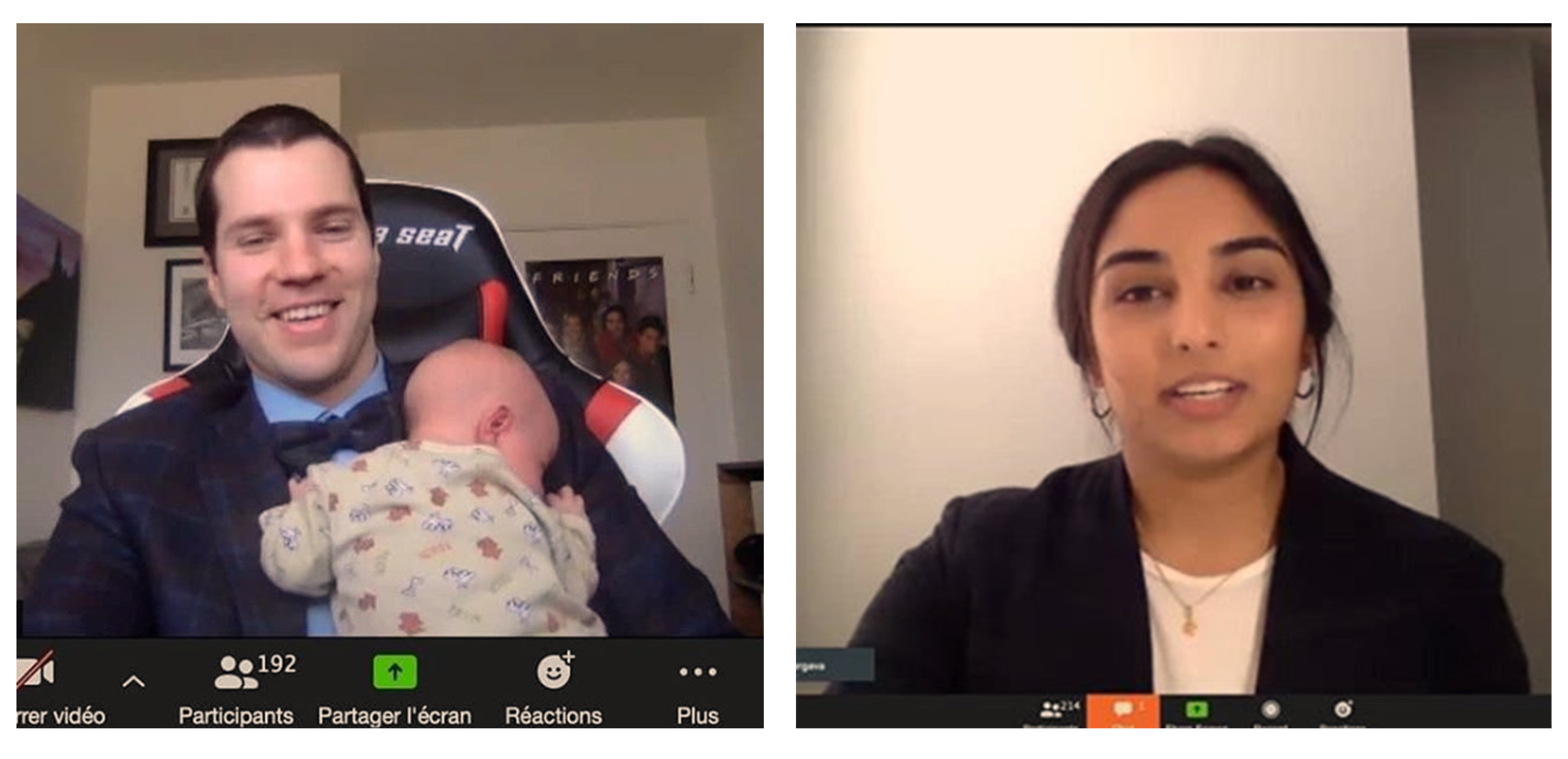
USask medical students elected to support student advocacy, wellness
Second-year medical students Lucas King and Sehjal Bhargava know they are in the best positions to support and advocate on their classmates’ behalf in Saskatchewan and across the country.
By Kristen McEwenAt the end of April, King and Bhargava were respectively elected as incoming Director of Student Affairs (Dir. SA) and Director of Government Affairs (Dir. GA) at the virtual Canadian Federation of Medical Students (CFMS) Spring General Meeting.
Both students are more than familiar with the world of student government. For two years, Bhargava served on the Student Medial Society of Saskatchewan (SMSS), chairing the Government Affairs and Advocacy Committee (GAAC).
“Health advocacy, and upstream determinants of health are topics I’m passionate about and love working with,” Bhargava explained. “I wanted a new way to channel my energy.”
Dir. GA oversees political advocacy initiatives of all Canadian medical schools at the local and national levels. In her role, Bhargava will chair the CFMS GAAC and the National Day of Action, which draws attention to key health issues Canadians are facing.
“Being involved with GAAC absolutely influenced my areas of interest and changed the trajectory of my career,” Bhargava said. “In this role, I really want to make advocacy more accessible to medical students.
”It’s empowering to see change be made when we come together,” she added. “Advocacy is a skill we should all have. It’s something medical students can use now as students and later as doctors.”
King previously served as the Vice-President Academic Senior for the SMSS. As the incoming Director of Student Affairs (Dir. SA), he will be overseeing the CFMS Student Affairs portfolio and coordinating CFMS member benefits and services. The Dir. SA also serves as a CFMS representative on both the AFMC Student Affairs Committee and Resident Doctors of Canada (RDoC) Resiliency Curriculum Working Group.
“I’ll be focusing on more structural high level changes,” King said. “Medical students see anxiety, depression and suicidal ideation beyond what we typically see in the university population. We’re trying to figure out why that is and what we can do about it through initiatives like our Wellness Curriculum Task Force.”
King explained that the task force would advocate for the creation of health promoting learning environments and curriculums that focus on learning and well-being.
“We’re advocating for those bigger preventative changes, rather than expecting yoga and free food to address wellness,” King said.
The College of Medicine had significant representation at the Spring General Meeting overall compared to medical schools across the country.
“We’re known to have a bigger than normal delegation,” King said. “We were initially supposed to take about 10 people with us, but with the shift to online, more students were able to go.”
More than 10 per cent of the attendees were from the College of Medicine. Access to funding from the college was a key reason for the large representation
The College of Medicine Dean’s office makes travel awards available for events like the CFMS Spring General Meeting.
“The online format lent itself to more students meeting colleagues from across the country,” he added. “The more students that could attend, the more people are exposed to the paths of medicine to get involved and collaborate.”
